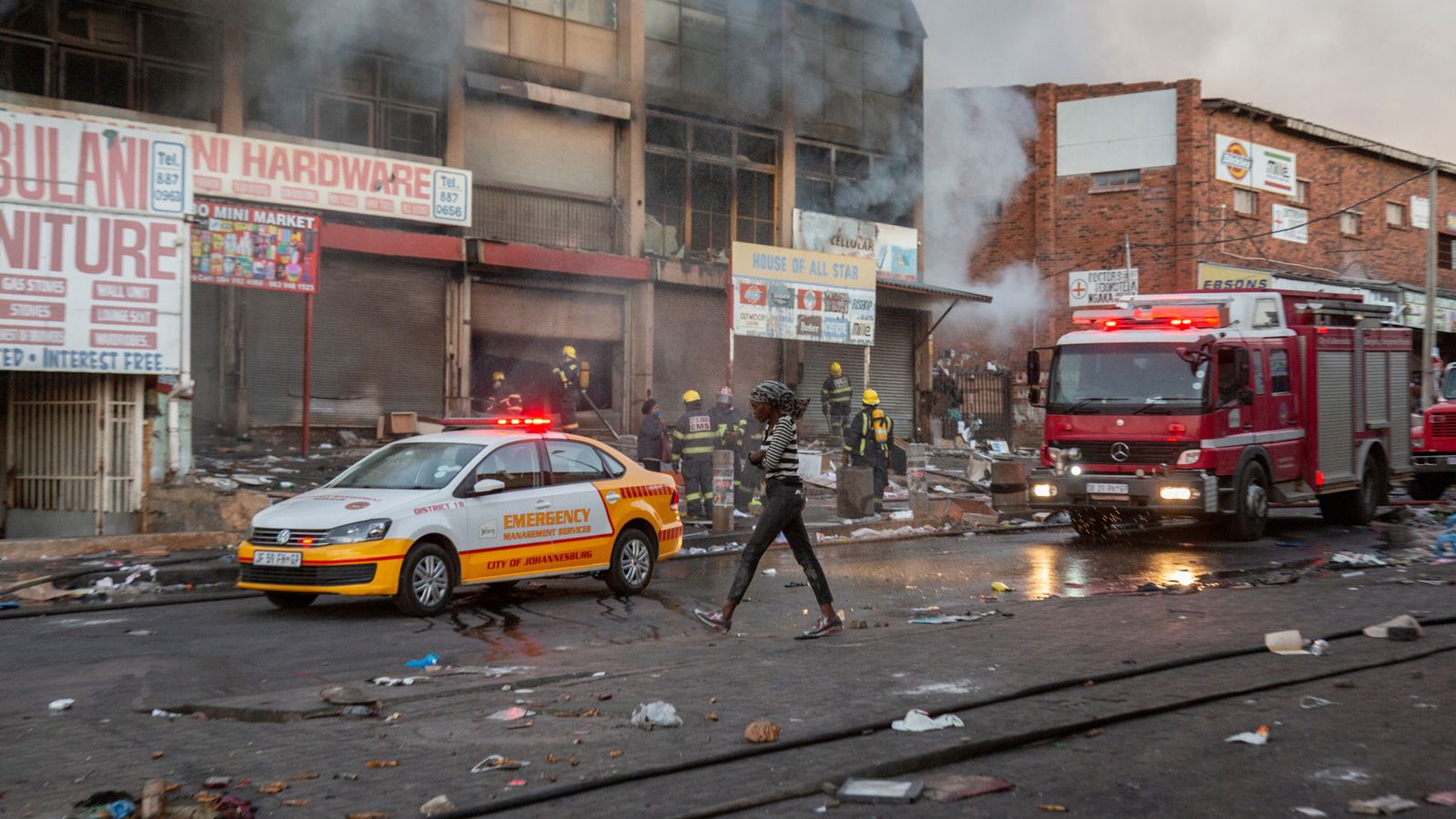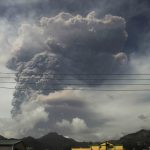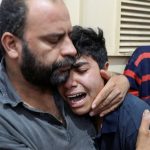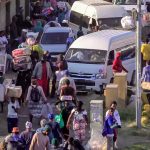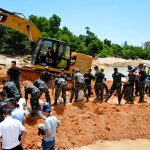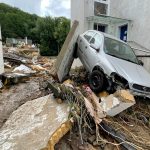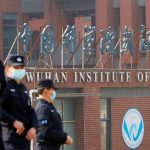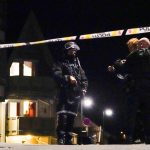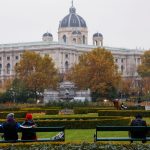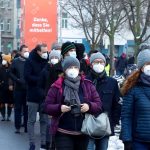We arrived in the Johannesburg township of Alexandra expecting to see the tattered aftermath of a riot, but we quickly discovered multiple disturbances in this impoverished community were still taking place around us.
Dozens of shops had been looted and the streets were covered in waste and debris in what looked like an urban warzone in South Africa.
The police fired rubber bullets and tear gas at crowds of mostly young men and we watched as they scrambled behind walls and slipped down narrow pathways in an attempt to keep clear.
As officers retreated, the crowds reappeared with individuals disappearing into shops to pick the shelves clear.
It was a pattern that repeated itself again and again.
These disturbances were triggered by the arrest of the country’s former president, Jacob Zuma, after he was sentenced to 15 months in prison for refusing to participate in an inquiry into corruption during his 10-year presidency.
His family and supporters called for a national shutdown and groups of WhatsApp-circulated voice notes urged people to take to the streets.
But these protests have turned into something more unpredictable and destructive, spreading from Zuma’s home province of KwaZulu-Natal into the country’s economic heart in Gauteng.
Television news channels broadcast live footage of people breaking into electronic shops and filling their arms with flat-screen TVs.
In Alexandra, mobs rushed in and out of outlets in the Pan Africa Mall, carrying whatever they could carry. When we entered the premises, 18 hours after the first assault, there was practically nothing left.
In the cities of Durban and Pietermaritzburg, shops and factories went up in flames and burnt out trucks littered the main highway between Durban and Johannesburg.
South Africa’s consumer goods council warned the unrest may lead to food shortages as deliveries have been disrupted, while banking services and healthcare have also been impacted.
The council said the events of the past few days will be devastating to the economy, which is already struggling to recover from COVID-19 lockdown restrictions.
Such turmoil is fraught with risk. At least six people have lost their lives and hundreds of people have been injured.
In Alexandra, we saw a man lying motionless on the pavement outside a bank branch with residents stepping over his body in an effort to avoid the police.
In a nationwide address, the country’s president, Cyril Ramaphosa, pleaded for calm and said members of South Africa’s military would be deployed on the streets.
He said: “The path of violence, of looting and anarchy, leads only to more violence and devastation. It leads to more poverty, more unemployment, and more loss of innocent life. This is not who we are as a people.”
In his address, Ramaphosa acknowledged the role played by poverty in these protests – a situation that has been worsened by the global pandemic with millions of South Africans looking for work.
“This moment has thrown into stark relief what we already knew: that the level of unemployment, poverty and inequality in our society is unsustainable,” he said.
“We cannot expect a lasting and durable peace if we do not create jobs and build a more just and equitable society in which all South Africans can participate freely and equally.”
